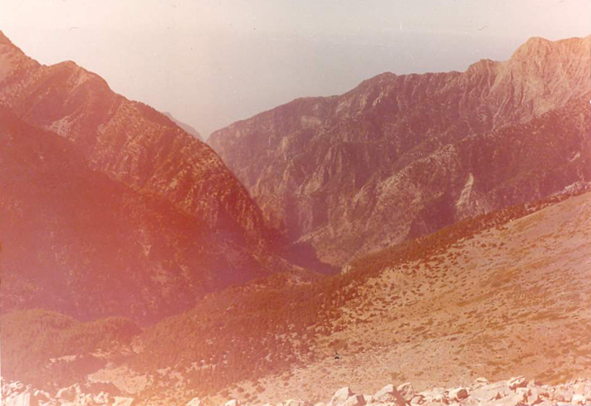User:Yiorgos Bagakis: Difference between revisions
No edit summary |
|||
| Line 45: | Line 45: | ||
== Essays == | == Essays == | ||
( | |||
=== Theoretical Sketchbook === | |||
I don't like to separate theory from practice. I initially thought of using a common space for keeping notes for my thematic projects and essays. But I decided to split the space for reasons of clearer presentation. That by no means that theory notes cannot lead to possible practical projects and vice versa. | |||
---- | |||
'''28.10.2010 | |||
''Don Gentner & Jakob Nielson'' | |||
THE ANTI-MAC INTERFACE | |||
(1996)''' | |||
The text was written in 1996; and indeed, still in 2010 we still seem settled (or even stuck) on the WIMP model (Windows, Icons, Menus, Pointer) of computer interface. We assume that this model is perfect and set - but, this text argues, that the case should be different. | |||
Mathematicians and Physicists often imagine a world where basic principles are violated (antigravity, non-Euclidean geometry). These violation not only work as a mental excersise but help to form very useful descriptions of the world. | |||
Humans need simplified models of representation in order to understand complicated concepts. An other example is the world - the concept of universe and cosmos. We often see simplified two domentional diagrams (eg maps) to help us comprehend abstract and highly complicated systems (think also of how we view earth - the essence of location or existence is through 2d maps) | |||
So lets examine the types of interfaces that could result if we violate each of the Macintosh (this could basically work for Windows 7, Ubuntu Gnome, Mac OS or any contemporary Operating system's graphical interface, since little has changed since '96, when the article was written) | |||
**VERY INTERESTING CHALLENGE - MATERIAL FOR A PERSONAL PROJECT>>>WHAT IF... | |||
The established model of human interface - which was pioneered by Macintosh computers (late 80s / early 90s) was designed under the following constraints: | |||
== Study Log == | == Study Log == | ||
Revision as of 11:59, 28 October 2010
Bio
With a broad interest in a range of disciplines;
from interactive design to illustration and from
typography and information design to moving image,
experimental music, cognition and programming.
Since my graduation from London College of Communication
in 2003 (BA Graphic Media Design, Information Design
pathway) I have been active in London's design community
through a number of internships, freelance positions
and fulltime roles in a variety of design fields (print,
branding, web, interactive media).
The following 2 years, through the MA Networked Media course
in PZI, I would like to examine the various ways that new digital
media have altered the practice of visual communication but also
explore their more creative and artistic potential of the internet
and networked media.
Personal Sites
Thematic Projects Portfolio
- Build, Break, Broadcast
- my second thematic project
- my third thematic project
- my fourth thematic project
Essays
Theoretical Sketchbook
I don't like to separate theory from practice. I initially thought of using a common space for keeping notes for my thematic projects and essays. But I decided to split the space for reasons of clearer presentation. That by no means that theory notes cannot lead to possible practical projects and vice versa.
28.10.2010
Don Gentner & Jakob Nielson
THE ANTI-MAC INTERFACE
(1996)
The text was written in 1996; and indeed, still in 2010 we still seem settled (or even stuck) on the WIMP model (Windows, Icons, Menus, Pointer) of computer interface. We assume that this model is perfect and set - but, this text argues, that the case should be different.
Mathematicians and Physicists often imagine a world where basic principles are violated (antigravity, non-Euclidean geometry). These violation not only work as a mental excersise but help to form very useful descriptions of the world.
Humans need simplified models of representation in order to understand complicated concepts. An other example is the world - the concept of universe and cosmos. We often see simplified two domentional diagrams (eg maps) to help us comprehend abstract and highly complicated systems (think also of how we view earth - the essence of location or existence is through 2d maps)
So lets examine the types of interfaces that could result if we violate each of the Macintosh (this could basically work for Windows 7, Ubuntu Gnome, Mac OS or any contemporary Operating system's graphical interface, since little has changed since '96, when the article was written)
- VERY INTERESTING CHALLENGE - MATERIAL FOR A PERSONAL PROJECT>>>WHAT IF...
The established model of human interface - which was pioneered by Macintosh computers (late 80s / early 90s) was designed under the following constraints:
Study Log
Prototyping Updates
- assignment 1
- assignment 2
- assignment 3
Project Planning
Final Project
Planning
- Final Project Proposal
- Schedule
- Documentation of Process
External Links
Final Project Documentation
- Exhibition

